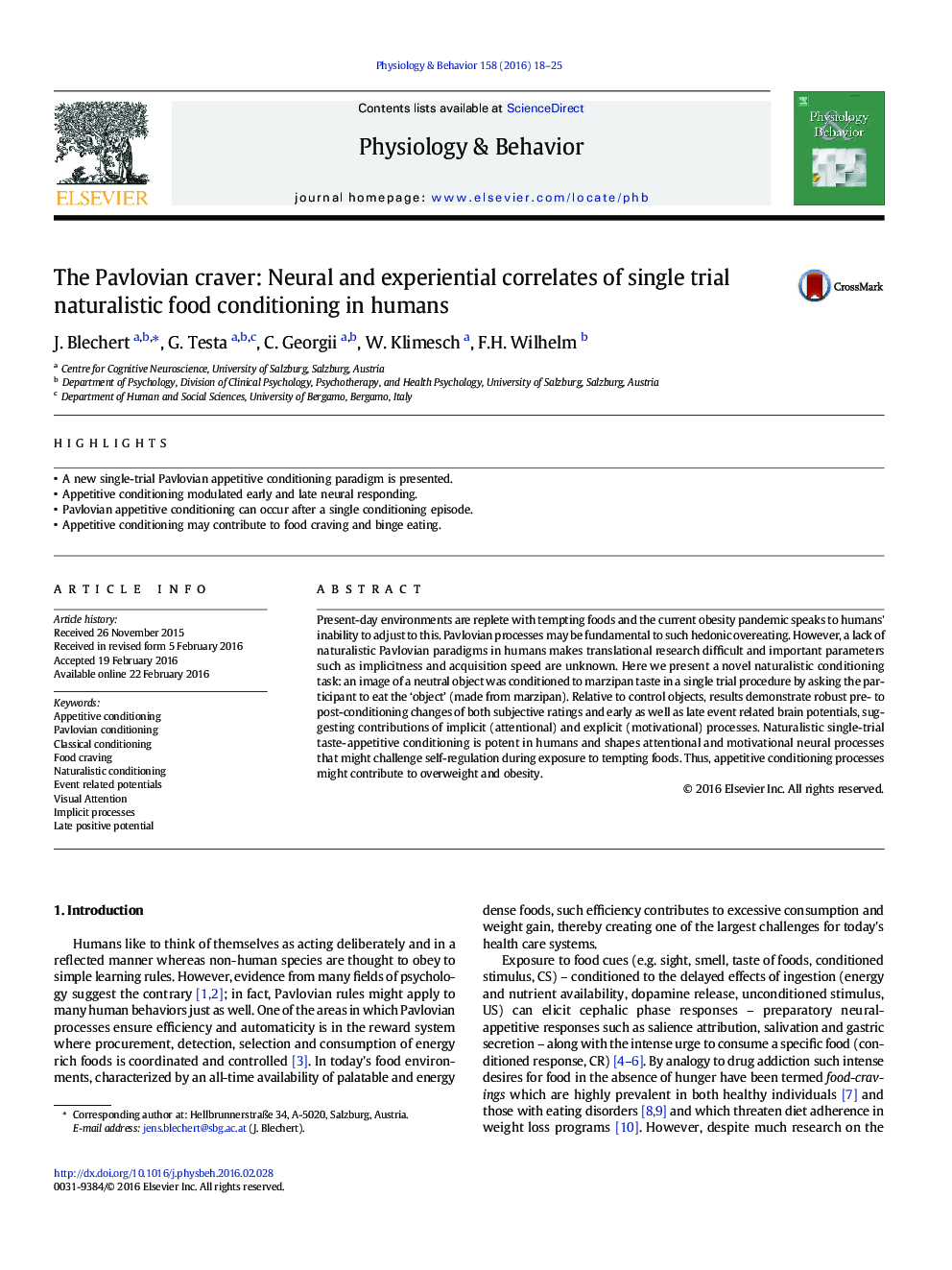| Article ID | Journal | Published Year | Pages | File Type |
|---|---|---|---|---|
| 2844046 | Physiology & Behavior | 2016 | 8 Pages |
•A new single-trial Pavlovian appetitive conditioning paradigm is presented.•Appetitive conditioning modulated early and late neural responding.•Pavlovian appetitive conditioning can occur after a single conditioning episode.•Appetitive conditioning may contribute to food craving and binge eating.
Present-day environments are replete with tempting foods and the current obesity pandemic speaks to humans' inability to adjust to this. Pavlovian processes may be fundamental to such hedonic overeating. However, a lack of naturalistic Pavlovian paradigms in humans makes translational research difficult and important parameters such as implicitness and acquisition speed are unknown. Here we present a novel naturalistic conditioning task: an image of a neutral object was conditioned to marzipan taste in a single trial procedure by asking the participant to eat the ‘object’ (made from marzipan). Relative to control objects, results demonstrate robust pre- to post-conditioning changes of both subjective ratings and early as well as late event related brain potentials, suggesting contributions of implicit (attentional) and explicit (motivational) processes. Naturalistic single-trial taste-appetitive conditioning is potent in humans and shapes attentional and motivational neural processes that might challenge self-regulation during exposure to tempting foods. Thus, appetitive conditioning processes might contribute to overweight and obesity.
